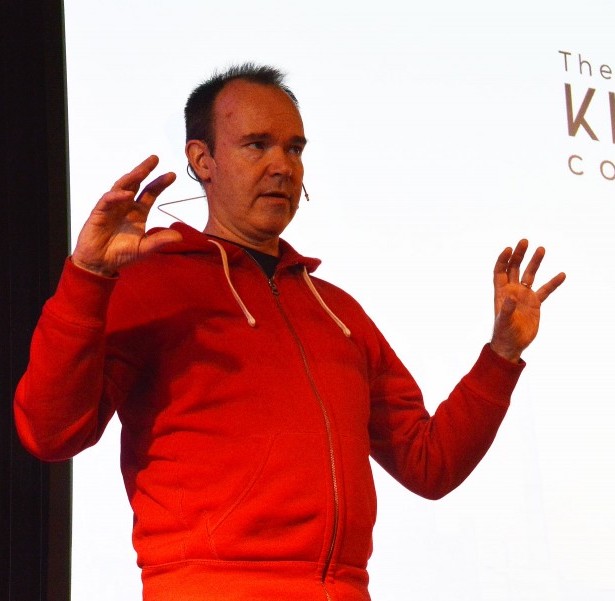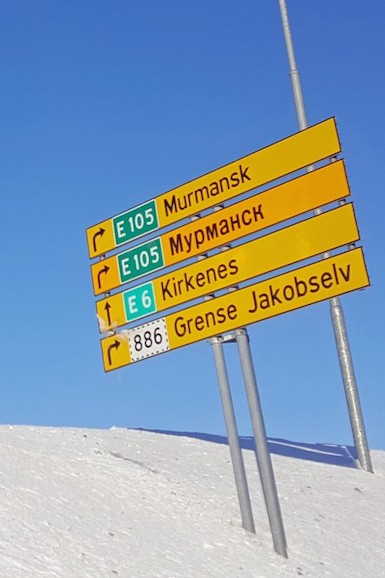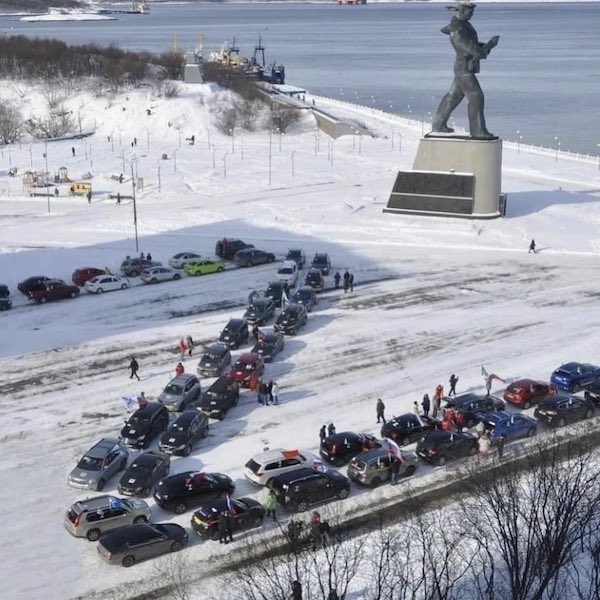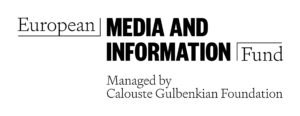🇳🇴 In Kirkenes, an international reputation in jeopardy over a Russian friendship
“Friends of Russia are enemies of the rest of us, as simple as that,” says Finnish entrepreneur and investor Peter Vesterbacka

CONTINUING THE KIRKENES-SEVEROMORSK friendship agreement would put foreign investments into the Norwegian border town into jeopardy, according to Peter Vesterbacka, the Finnish entrepreneur and investor who was brought to fame by the Angry Birds video game he helped to create.
It is “very clear that this friendship agreement should be ended”, Mr Vesterbacka says. Severomorsk, he adds, could of course condemn the war, but if they don’t, “Kirkenes should end the friendship. As simple as that.”
Mr Vesterbacka continued his entrepreneurship after the success of Angry Birds, and his activities include involvement in the company that is planning a railway from Rovaniemi in northern Finland to Kirkenes, on the coast of the Barents Sea.
Kustaa Valtonen, a co-founder of Finest Bay Area Development together with Mr Vesterbacka, elaborates: “We do a lot of business activity in Kirkenes and would love to do more, but local attitude is very important to be aligned with the reality of a world that changed one year ago. We need to stand on the right side of history.”
A new friendship agreement was signed between Kirkenes and Severomorsk in 2016, two years after Russia’s annexation of Crimea. Last fall, the local council voted down a proposal by one of its members to abandon the agreement in protest of the war on Ukraine.
Severomorsk is not an ordinary northern Russian town. It is home to the headquarters of the powerful Northern Fleet. Due to its military strategic importance, Severomorsk is closed to outsiders not holding a special military permit to enter.

Very few from Kirkenes have ever been allowed in.
One of those who have is Rune Rafaelsen, a former mayor of Kirkenes. He has been there three times. The two most recent as an official guest at the annual Navy Day weapons parade, in 2018 and 2019. Taking part in the parades were veterans from Syria and the battlefields of the armed conflict in Donbas. On the waters of the Kola Bay, the navy showed off its surface warships and nuclear-powered submarines armed with Russia’s most potent weapons: ballistic missiles topped with multiple nuclear warheads.
Today, Severomorsk has only one sister city in addition to Kirkenes: Grozny, the capital of the Chechen Republic ruled by the authoritarian leader Ramzan Kadyrov.
Kenneth Stålsett, chief executive of Sør-Varanger Utvikling, a publicly funded Kirkenes-based business development company, fears the lack of will to cancel the friendship agreement with Severomorsk could harm potential foreign investments.
“Kirkenes is a brand and no brands want a bad reputation and negative associations,” Mr Stålsett says.
He takes the reactions from Finland seriously. “Clearly,” he answers when asked by the Barents Observer if Kirkenes should cancel the friendship agreement with Severomorsk.
“The agreement is on a governmental level and has nothing to do with people-to-people relations the politicians are afraid to lose. Severomorsk, by itself, is a strange place to continue to have agreements with today,” he says.
Harald Sunde was one of the local councillors that last fall didn’t vote in favour of ending Kirkenes’s friendship agreement with Severomorsk. Today, he has changed his mind.
“I support disapproving the draft agreement from 2016,” Mr Sunde says and points to uncertainties in regard to the signed agreement’s validity. The question is whether the mayor could enter such an agreement without prior support from the council.
Mr Sunde expects the case to be on the agenda at the next council meeting in late March. Meanwhile, the governor of the county of Troms and Finnmark, Norway’s northernmost region, has sent a letter to the town-hall in Kirkenes recommending ending co-operation on topics of sensitive importance, given the “current security situation”.

The Barents Observer has previously reported about a section of the 2016 agreement stipulating co-operation on municipal technical matters.
In 2019, a delegation of Orthodox priests from Severomorsk visited to Kirkenes. They wanted to see and learn more about the city’s water-supply system.
The main water supply is some 10km south of the town. A pumping station and pipes are in the harbour area. The delegation wanted to see it.
Further insights, however, were not given as the mayor and the chief of police decided it was not a good idea to take the guests on an excursion that would reveal details about the water supply in the closest Norwegian city to its border with Russia.
Kirkenes and Severomorsk signed their first friendship agreement in 1988. Today, no-one in the council can recall who took the initiative and why it was considered to be a good idea to team up with the city that was the home of the Soviet Union’s most important navy base.
Mr Vesterbacka’s message is clear though: “Friends of Russia are enemies of the rest of us.”
He underscores his sentiment with a quote from Desmond Tutu, the South African arch-bishop who was the 1984 Nobel Peace Prize laureate: “If you are neutral in situations of injustice, you have chosen the side of the oppressor. If the elephant has its foot on the tail of a mouse, and you say that you are neutral, the mouse will not appreciate your neutrality.”
For Mr Stålsett, the road ahead is clear.
“Our local society has asked for more collaboration with Finland for years, and the doors are now open. If we really want a bright future, we should adapt and find new ways. The international society loves our region, so let’s put momentum into that and attract talent, collaborate and develop.”
He adds that there could come new possibilities in collaboration with Russia after the Putin regime collapses.
In addition to Severomorsk, Kirkenes (a part of the Sør-Varanger council) has a friendship agreement with Pechenga, the Russian council bordering Norway and home to the 200th Motorized Rifle Brigade and the 61st Naval Infantry Brigade. The two brigades have sent thousands of soldiers to the war in Ukraine.
Andrey Kuznetsov, the mayor of Pechenga, shows support for the war by driving around in a car decorated with a large letter “Z”.
FURTHER READING
• From end-of-the-line to new frontier
• How Angry Birds and prospects of Chinese funding power visions of the shortest-ever route from China to Europe
• All aboard: Tickets go on sale for Finland-Estonia train tunnel, yet to be built
• Arctic railway not commercially viable, report says
Located in Kirkenes, Norway, just a few kilometres from the borders to Russia and Finland, the Barents Observer is dedicated to cross-border journalism in Scandinavia, Russia and the wider Arctic. As a non-profit stock company that is fully own by its reporters, its editoral decisions are free of regional, national or private-sector influence. It has been a partner to ABJ and its predecessors since 2016.
This article has been fact-checked by Arctic Business Journal and Polar Research and Policy Initiative, with the support of the EMIF managed by the Calouste Gulbenkian Foundation.
Disclaimer: The sole responsibility for any content supported by the European Media and Information Fund lies with the author(s) and it may not necessarily reflect the positions of the EMIF and the Fund Partners, the Calouste Gulbenkian Foundation and the European University Institute.
